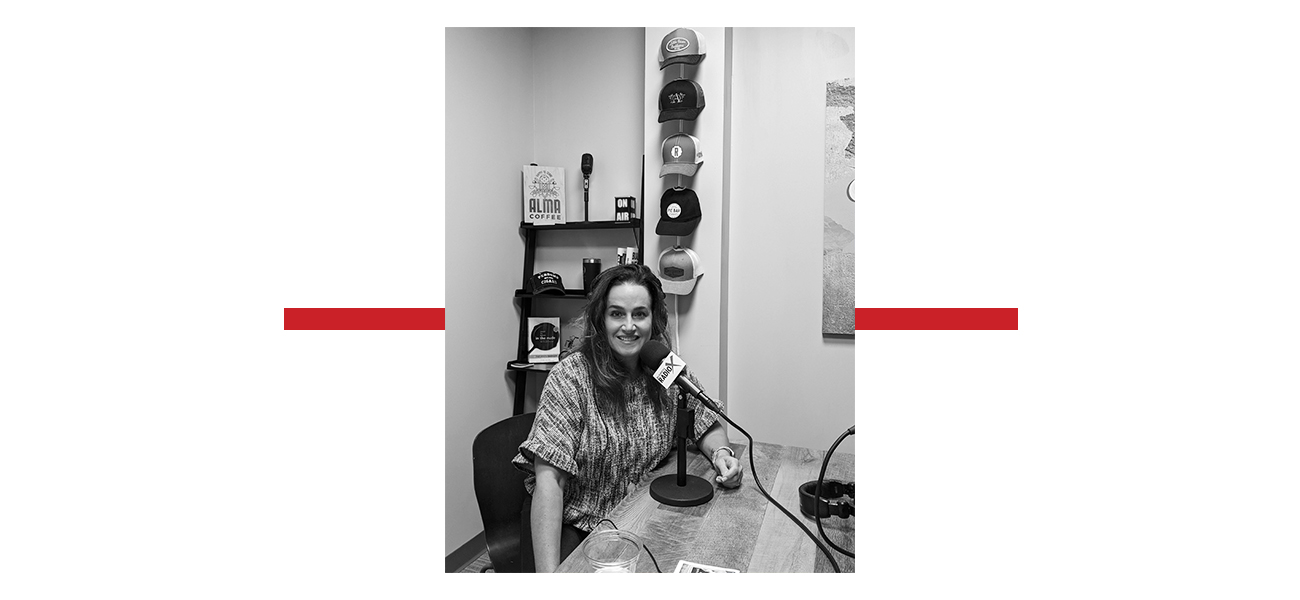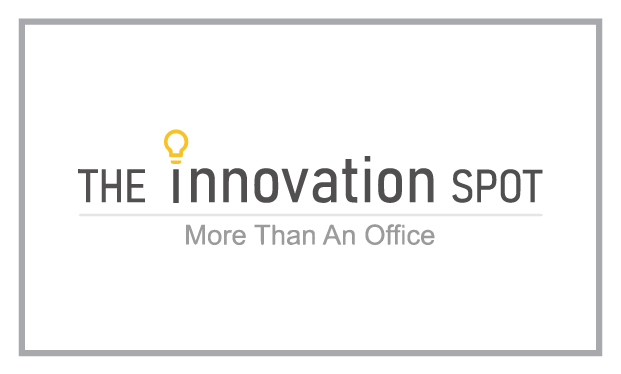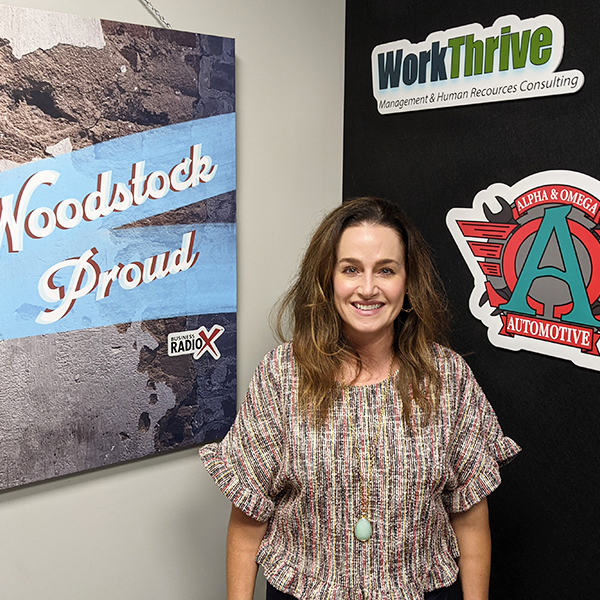
This Episode was brought to you by
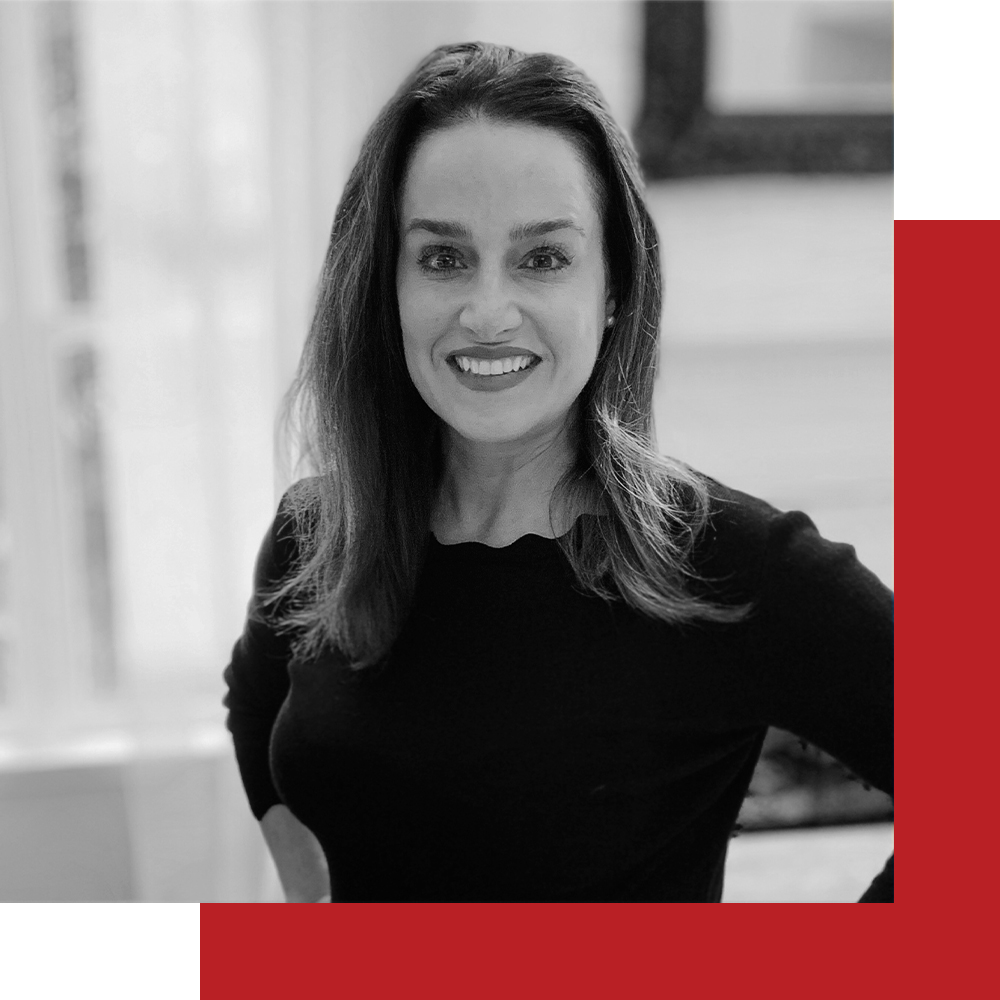 Nastran Andersen, CEO of A5 Advisory
Nastran Andersen, CEO of A5 Advisory
As an inquisitive leader and born conversationalist, Nastran has secured a reputation for collaborating across organizational boundaries, with a focus on building teams, gaining trust, and driving results. She has over 24 years of executive experience in marketing, sales, and corporate strategy for Fortune 10 and Fortune 500 companies within the healthcare information technology sector, as well as smaller to midsize organizations across various industries.
In addition to her leadership experience, Nastran is a skilled communicator with a solid background in strategic planning and infrastructure, program development, partner relationships, marketing and sales strategy, sales training and development, and focused marketing campaigns. Her approach focuses on turning strategy into action, helping the businesses she serves at every stage of growth, translating ideas into operational success.
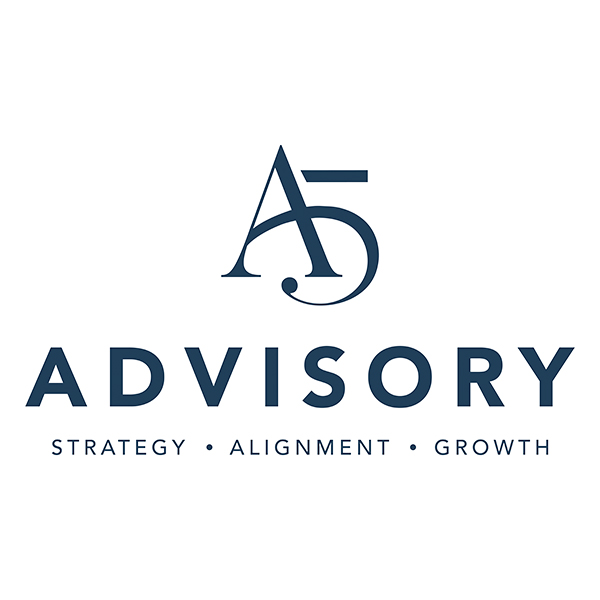 Connect with Nastran on LinkedIn
Connect with Nastran on LinkedIn
 This transcript is machine transcribed by Sonix
This transcript is machine transcribed by Sonix
TRANSCRIPT
Speaker1: [00:00:07] Broadcasting live from the Business RadioX studios in Woodstock, Georgia. Welcome to Women in Business, where we celebrate influential women making a difference in our community.
Speaker2: [00:00:22] Now here’s your host.
Speaker3: [00:00:29] Welcome to women in Business RadioX Stone Payton here with you this afternoon. And today’s episode is brought to you in part by Elmore Coffee, sustainably grown, veteran owned and direct trade, which of course means from seed to cup. There are no middlemen. Please go check them out at my alma coffee dot com and go visit their Rotary Café at thirty four. Forty eight. Holly Springs Parkway and Canton. As for Harry or the brains of the outfit. And please tell them that stone centu you guys are in for a real treat this afternoon. Please join me in welcoming to the broadcast with a five advisory Miss Nastran Andersen, good afternoon.
Speaker2: [00:01:13] Hi, Stone. Thank you for having me.
Speaker3: [00:01:15] Oh, it is a delight to have you in the studio. We’ve been planning this for some time, and we got connected because of a mutual friend and probably someone that most of the people in the Cherokee business radio listening community already know, Mr. Mike Siena’s. So shout out to Mike. Thank you for putting this together. I enjoyed having a brief conversation with you several weeks ago when we talked about getting together for this. So thank you for making the time. I’ve really been looking forward to it. Mission purpose, would you share with us as we get started? Yeah, just what you guys at age five are out there and trying to do for folks.
Speaker2: [00:01:57] Yeah, absolutely. So we are focused on revenue advisory services. So we work with our clients to make sure that their sales and marketing parts of the organization are up and running, that they are they have their strategy in place, they have a great execution plan, and that they’re running on all cylinders. If you if you think about the sales and marketing as the engines of the plane, that actually lifts the rest of the organization up and allow you to fly. We’re focused on making sure that those are fully powered engines.
Speaker3: [00:02:30] Are the answers to those challenges sometimes often once in a while? Not at all. What they think they’re going to be. They being the client is, does that sometimes surprise them?
Speaker2: [00:02:42] Oh, of course, yeah. I mean, people have ideas about what they think they need. And often there’s there’s something there that is what they need, but they we help them uncover additional issues or will say, yeah, you’re actually doing OK here. This is an area where you’re performing pretty well in this part of the organization. You might want to put a little more attention or prioritize.
Speaker3: [00:03:05] I would think that that there would be some some challenges for for getting that process going effectively, if for no other reason, I would think someone would have to be really trust you to give you the information that you need to turn around and help them. And to the degree that you really need and want to help them, trust must be incredibly important in your world.
Speaker2: [00:03:31] Trust is incredibly important. I mean, if you think about it, this is this is how their business is going to continue to run. If you don’t have revenue, you don’t have a business. Right. So people are very trusting. It’s interesting, though, you know, I think we established that pretty quickly on early on in our relationships with folks, because if we’ve done this multiple times, we’ve done this hundreds of times with lots of business leaders. So when you see this over and over again, you know, the right areas, the right questions to ask, the right areas to help people when you’re in the middle of it yourself, these business owners. Yeah. I mean, it’s it is it’s challenging for them. And and there’s you can’t see the forest for the trees for for
Speaker3: [00:04:12] When we’re in the studio making hand signals at each other. For us, even though we’re on radio, which he was describing, that I was putting my hands very close to my face. But that’s the feeling when you’re in the middle of it.
Speaker2: [00:04:22] Yes, that’s exactly right. I mean, you’re in the middle of it and you have so many things that you’re trying to do to run an effective, productive business that you got to have some outside viewpoints to to help you see what’s around you.
Speaker3: [00:04:36] Well, and intellectually, I get that. And I own a pretty big chunk of the Business RadioX network and I own the whole thing of this little shop we’re in for for Cherki Business Radio. But I don’t know. I think it might take me a little bit to, you know, to share with you little details about all the stuff I’ve screwed up and what’s going on and what’s going on on the books. And I mean, it’s a little bit of a leap to to open up and and show you that. Right?
Speaker2: [00:05:03] It is a leap. It is a leap. Now, we’re working with you know, it’s it’s a different personality. I think we’re depending on the size of the company that you have. Right. So smaller organizations, smaller companies, they want to hold that closer to the vest because they they own everything, right. When you get into larger companies. So we’re working. And I’d say in the 20 million to 100 million range is our sweet spot of who we’re helping and.
Speaker3: [00:05:27] We’re not at 20 million here at Cherokee, just so you know, just to give you some context, we’re just not quite there yet.
Speaker2: [00:05:32] Not there yet. You’re going to get there. So you’ll get there and then you’ll be calling me. No, but it’s it’s when you have business functions, you say, OK, I have a marketing team or at least someone who’s leading that that part of the business. I have a sales team or at least a sales manager, a sales leader. I have engineering and we work with technology companies. So they have these kup these parts of the organization. And so when it gets to that that scale, I’d say past five or 10 million in revenue, that’s when they need some extra eyes on it. And so they’re at a point where they are ready for that help. They’re ready for that advisory.
Speaker3: [00:06:10] Ok, well, thank you for that lens, because that’s just that’s not my that’s not my world. But they have matured to it to a point and have developed people with specialized knowledge and expertize in a domain. And that’s, I guess some of their job is to share with experts like you. Here’s what’s going on over here and work in Yoki. Yeah, that’s all I have either read on your Web site or maybe it was you and I in conversation. You used this this this phrase, this term, and I’ve heard it before. Go to market. Go to market strategy. Can you break that down for those of us that didn’t go to class as much in college as others?
Speaker2: [00:06:43] Yes, absolutely. All right. Yeah. Without a business degree. Right. So go to market. When I think about go to market, I actually think about what is the. There’s a couple of things. What is the value proposition? What is it that we as a company provide and how are we going to get that to the market? How are we going to go solve that problem that we solve that we uniquely can do for those customers? And how are we going to approach that? The other thing I think about is, you know, there’s there’s competitive advantage. Is that something that’s really crowded? A lot of people are already trying to solve that problem. What’s different about what we do? And then the third piece of it is, what’s the vision of our company? What is our company going to or trying to solve? What are we trying to bring for our customers? How are we trying to help? So when we do that, we are taking all of those factors into account and developing a strategy and an approach. And that’s what I call go to market.
Speaker3: [00:07:44] So let us in if you’re if you’re willing. Let us in a little bit on your back story. How did you get into where you are now?
Speaker2: [00:07:51] Yeah, absolutely. So my background is all in health care, I.T. So all all of the technology systems, you know, we think about ours and we think about, you know, the system physician documentation and order entry systems. I started that in that industry 24 years ago. So working with big technology companies. So I was in the corporate world for over 20 years. And then three years ago, we decided to start our own business because I had seen this in and big scale and had worked with some super talented sales leaders, marketing leaders, corporate strategy folks. Those are the three areas of my background and really learned and thought, you know, this doesn’t have to only be in large corporate settings when you have these smaller organizations that are growing at this rapid pace and they don’t necessarily have big budgets to go have massive staff to accomplish those things. But that doesn’t mean they don’t need the talent and the help to someone to go do that for them. So that’s what we do. That’s that’s what we focused on. But it was taking that big experience and all of that background and being able to translate it to some smaller firms.
Speaker3: [00:09:02] Ok, so you saw the need again, I think I get that what I’m trying to envision, because I’ve been on the periphery of some of that large corporate work a long, long time ago and change management consultancies. So I know that you were probably making a very comfortable living. Yes. And doing what you were doing, and rightly so. So what I’m trying to envision is seeing the need and then and then navigating the the terrain between that and and starting your own business. I mean, was it was it you coming home to your spouse and declaring, I’ve got to do this, honey, or well, what did that look like?
Speaker2: [00:09:41] Yeah, absolutely. Well, I mean, it it is it’s it’s scary when you start to think, yeah. Jumping off and saying, OK, you know, look, we’ve got a family, we have children, then how are we going? You’re right. It was a very comfortable living. And so when you when you jump off. So he actually encouraged me. My husband is now my fulltime business partner as well. He had encouraged me for years.
Speaker3: [00:10:04] Need for him. Shout out. What’s his name? Neil. Neil, shout out to Neil. Good for you, Neil. Way to go.
Speaker2: [00:10:09] Absolutely. So, you know, he had been telling me for years, go do this on your own. Go do this on your own. Look at the value you’re bringing. Look at the help you’re providing. And so so I did. And so the stars aligned. We had we were in DC for a while. We moved back to Atlanta. And it was it was a perfect up. Fraternity for me to leave the role that I was in there and start fresh when we moved back here three years ago, and so we did. And so I jumped off first. And then in the fall that just in October, Neal joined me full time. So it’s been about a year that he’s been with me full time. So. Going from one. And now both of us jumping on.
Speaker3: [00:10:44] Yeah. What an exciting time for you guys. And what a what a milestone. That’s that’s fantastic. So I would think that there would be plenty of. It’s not fair to call it naive, but I will you know, it’s my show. Naive optimism in the early going. You know this from back from the old change management days, like when something new was coming. Some folks are really excited about it, but they’re they’re not as informed about it as they might be. And as a result, they don’t know some of the negatives. So I can see plenty of that when you first get going. And I’m sure there were some some pleasant surprises in some of those things came to fruition early in getting your business off the ground. Were there some things that just really took you aback, really, really surprised you when you were getting this thing off the ground or any like major growth or learning experiences?
Speaker2: [00:11:29] Oh, gosh. So many, so many. Krosnick. Okay. Yeah.
Speaker3: [00:11:33] I wasn’t just me, OK? Yes.
Speaker2: [00:11:34] No. There’s absolutely so many growth and learning experiences. I think when you start something like that, because, you know, consulting that feels very nebulous. What is consulting, you know? It took us a minute, honestly, to really laser in on sales and marketing, the revenue centers, the commercial functions of the business.
Speaker3: [00:11:51] That’s kind of your own business. Well, or as your focus of what you’re going to deliver as
Speaker2: [00:11:56] Our focus of what we’re going to deliver, because that. So that was one thing, right? Because there are there are different areas where what we do is and you’re improving on communication, you’re improving on strategy, you’re improving on internal making sure that these teams are working well together. That can apply. And you can almost say you have a general consultancy, but people, they’re like, oh, OK, well, I don’t know. How do I buy from you? Do I really need to work with you? What? So that was the challenge, right? Really zoning in on what I call our zone of genius, which is sales like sales and marketing. I may
Speaker3: [00:12:30] Borrow that.
Speaker2: [00:12:31] You can. Everyone has their zone of genius. You have your zone of genius right here in this in the studio. So, yeah. So that’s that’s that was one thing that was challenging the other thing, too. So this is really interesting. He and I both have worked with very large companies. And we also work, you know, even in the 20 to 100 million, you know, we’re not there yet either. Right. It was a big challenge for us to figure out just some of the operations or the how do I put this together? How do I start to scale my own business as a small business owner? Who am I marketing to? You know, we’re we’re, you know, experts at sales and marketing. We got to do our own marketing. So those are some of those challenges.
Speaker3: [00:13:13] Well, that’s an interesting question. I’m always curious and I ask it a lot and I’ll ask it of you with your permission. But how does the whole. Well, let me back up. My my preconceived notion is that in some respects, you’re in a fairly crowded arena, or to the layperson, what you do could look like there’s a lot of people in the field. And so my question is, how does the whole sales and marketing thing work for a firm like yours? Because you’re you’re building relationships with earning the trust of and getting people to write you checks from somewhere? That’s right. So it’s really established entities, the sales team. I would I would think and maybe I’ve got it all wrong that you couldn’t just pick up the phone and say, hey, would you like to talk about or maybe you do. How how does that work?
Speaker2: [00:13:58] Yeah. Well, I mean, you would think actually it’s really fascinating to me and we uncover this so frequently with our clients. And so, number one, it’s very referral, heavy business. Right. So people that I worked with over the last 20 plus years and that Neal has worked with over the last 20 plus years himself, that’s our network. And we are definitely very focused on maintaining our network, making sure that we’re staying in touch with people and continuing to to, you know, provide value to those those people that I grew up with that I in my career. Right. Right. That we sold together. We were in the trenches together. They’re now CEOs, CEOs, presidents of these smaller organizations. And those are our clients. So it’s very referral heavy. Now, that said, what we’ve found is 90 percent of our clients are actually private equity owned. So we have started to go in and working with the private equity firms directly. What’s fascinating to me is because these private equity firms have so many resources from financial modeling, merger and acquisition, due diligence and reast market research, those kinds of things. But when it comes to consulting specifically on the sales and marketing functions of these companies that they own, they don’t have as many resources. It’s amazing to me they don’t have as many resources because they lean pretty heavily on that business and expect that. That business is going to have a sales function. Have a marketing function, so. So that’s where we come in. We help the people in those businesses that those private equity firms own. So.
Speaker3: [00:15:37] In doing that, do you find that you guys are gravitating toward or more opportunity surface in a certain type of industry, a certain sector or a certain geo? Or is it kind of spread out?
Speaker2: [00:15:53] I would say it’s it’s focused in on a couple of different areas. One is so certainly health care I.T., because that’s what
Speaker3: [00:16:00] Makes all the sense in a world that.
Speaker2: [00:16:01] Right. And those are the folks that I’ve known for so many years. So that is that’s a key piece. Technology companies that are in high growth mode. So they are growing. They’re trying to figure out how to scale. They’re thinking about, OK, what’s our next move? Do we have the right people, the right talent to get us there? Do we have the right infrastructure to get us there? And then we have, like I said, that 20 to 100 million range seems to be the sweet spot. People who are these major corporations, can we help them? We can. But they a lot of times they have big, big teams themselves. They already have a very large marketing organization. People who are in the the small business, the under five million, the under one million dollar or even startup companies. That’s not who we’re able to help it just because it’s not our focus area. There are some super, super talented people who do that incredibly well. We focus on on a little bit like the next level up.
Speaker3: [00:17:01] Okay, so the term you used, did you say venture capital equity partners, private equity, private equity. Okay. So that’s a that’s a little further down the road than the than the venture capital that’s working with like startups that have gotten just a little bit of money to get off the ground here, a little further down the stream than that,
Speaker2: [00:17:19] A little further down the stream. Ok, these investors or you know, there may be there’s a merger and acquisition. A private equity firm is saying, hey, we’re going to buy these similar companies and merge them together or we’re going to buy these similar companies and help them run. They still do similar to, you know, they expect a return on their investment. Sure. But yeah,
Speaker3: [00:17:39] That’s. So the analogy I’m drawing in my head, and if I’m all wet, you can tell me to Husham be if you want, we’ll take it out of the show. I got kids in the shop that’ll edit it out. But my analogy, because, again, it’s just not my world. It’s one of the things that’s fun about doing the show because, you know, it’s OK to be a lay person. Just ask the questions. It helps us all learn. I think my analogy for this is we were so blessed, Holly and I, when we moved to town, we had a lady by the name of Jill Heinicke as our realtor, and she’s at the top of her game. She just part of what she did was very quickly on. She brought in a stager. Ok. So in my analogy is, if I’m a private equity outfit on top of our game, what we do is, you know, as soon as we get to a certain point with different folks, with different organizations in our portfolio, we bring in a five. Right. That’s right. But it’s just I mean, if you’re going to do it right, you just bring in a body just like you bring in a stage for your house.
Speaker2: [00:18:37] That’s exactly right. You bring in a five and you help them get stabilized with this function of the business. You know, whether it’s, hey, they need to build out their marketing strategy. They need to make sure that their sales team is structured to to serve the market. Maybe they’re going to go launch a new product or go after a new market. How are they going to do that? Do they even have a plan of how they’re going to accomplish it? And that’s exactly where we come in.
Speaker3: [00:19:00] Makes perfect sense. I like it. Well, I’m learning a ton here with you and Neil, have when you built this this thing out, as you begin to put it together, did you get really clear about delineating roles that each of you would play or did that sort of just speak a little bit, if you don’t mind, to that, to that? Because in some ways, I find it incredibly alluring, particularly because my wife, who has a real job and is very well accomplished, man, I’d love to have her in the business. She’s got to hang up her cleats and maybe a year and a half. Sure. And I’d love for her to join our business. But part of me is really excited about that. Yes. You know, I don’t know. There may be some challenges. Do you mind speaking a little bit to how you and your chosen to work
Speaker2: [00:19:45] This thing together? Yeah, absolutely. I’m happy to. And it’s funny, you know, people ask us all the time, we’re like, oh, my gosh, do you work with your spouse? How? I could never do that. So know we really enjoy it, actually. So, number one, you know, from a relationship standpoint and I think you think about this with how your even your business relationships and your colleagues and, you know, friends, you have to number one, you got to have some thick skin and make sure that it’s this isn’t personal. Right. This is when we’re talking about business. Neal and I are very good about compartmentalizing and saying, OK, we’re talking about business right now and we have to be able to challenge each other in unique ways that you would normally do with your team member. But when it’s your spouse, you have to you have to shut it down and think about, OK, this is my business partner. Right. So I think there’s some communication things that we’ve. We just have handled relatively well. The other thing is, you know, we don’t hold grudges. If you get upset, it’s like, all right, leave it, leave it at the office. That’s that was work. Now, where we’re married, where you have children, you know, let’s think about that. So, you know, just from a high level, that kind of thing as far as role delineation. It’s a matter of, you know, we are partners really in the whole thing. And so he has a really fantastic strategy brain. He’s great at sales training, sales enablement and on and on and building sales teams.
Speaker3: [00:21:11] And that would be incredibly important in your world.
Speaker2: [00:21:13] It’s incredibly important for us as a business, but it’s also where, you know, he’ll focus on that side of it. I have a lot more experience in and the corporate experience and the the tool sets and things that I’ve done over the years that are specific to marketing. So it’s it’s the two coming together. So, you know, traditionally, especially if you think about big corporations, sales and marketing is always like they’re at battle with each other. And so we have demonstrated this is the importance of and this is how sales and marketing can work really well together. And that’s something that we demonstrate for our our clients as well. So I think that his sales background, my marketing background, you know, we’ve we’ve kind of brought it all together.
Speaker3: [00:21:57] Well, that’s fantastic. So three years roughly into this thing, what are you finding the most rewarding and what if you don’t mind sharing are is a challenge or two that you’re still trying to work your way through?
Speaker2: [00:22:10] Yeah, absolutely. Most rewarding. This is fun, stone. We really are having a great time, like not just working together and doing our own thing. And it’s fun for a number of reasons. One is just being able to truly help our clients and to say, hey, I know how to solve that for you. I know how to help you. I know how to make this, you know, go to a certain way. Not to say that every product is absolutely perfect. Right. But really digging in and working with these businesses and getting to know them. And people really appreciate it. They enjoy it. They they are enjoying themselves along the way. So I love that. That’s very rewarding. And then just something for me to do. I think I enjoy being a consultant because I like the freedom to just call it like it is. And I’m going to tell you that there’s an issue. I’m going to be very direct, very kind, but I’m going to be very direct and straightforward about this is the business challenge that you have. I’m not concerned about my job security, about, you know, hey, I don’t want to tell my boss this thing. You need to tell them what they need to hear. And that’s fun because it’s a it’s just a freedom of this communication and calling things out that need to be called out in order to help them. Right. Yeah. Challenges. So, gosh, I mean, it’s you can
Speaker3: [00:23:30] Say, Neal, you know, I’m teasing. No, not until.
Speaker2: [00:23:35] Well, when it’s when it’s anneal, then I go he stays in his home office and I go to mine. No. So I think that it’s like I mentioned before, we’re working with much larger companies than our own. And so how do I go to market? What should my messaging strategy be? It’s funny. You know, I’m I’m a good marketer, but it’s really hard to write your own stuff. So that’s how it is. You got to you got to have outside eyes on that. So that’s been a challenge. And then, you know, there’s just so many number of things to do. You know, from running a small business, it’s everything from, you know, your billing to your email system, to your, you know, all of the offer, you know, your bookkeeper, all all of the little operations, things that you need to set up to have things running. There’s a lot
Speaker3: [00:24:21] In today’s the first day of the month, I think today
Speaker2: [00:24:23] Is September 1st.
Speaker3: [00:24:24] So, yes. So my sales manager, her name is Holly. Yes. So my wife, she’s going to ask me about revenue this month, even though she doesn’t really work here. You know, we have to have our little you know, she keeps me she keeps me on track. So maybe we’ve already touched on this. So the the things that. Is there anything that you find? Is there any like this what would you call it, like this cobbler’s kid syndrome? Oh, sure. Where you’re nailing this thing for your client. And it just it’s it’s it’s not it’s not happening back at all.
Speaker2: [00:24:59] Yeah. I mean, it has you know, for me and I think I’m so sensitive to it because I am a marketing professional. I consider myself a man. So I always want to tweak the website. I always want to I always want to change this email series that we’re sending out. I always want to, you know, think about, hey, should we be reaching out to this other part of the market? I really enjoy the sales side. I like meeting with new clients. I like speaking with all of these different private equity firms and chatting with those folks. I love that part. The doing my own marketing. It’s that’s exactly the cobbler’s kid has no shoes. Yeah.
Speaker3: [00:25:34] Yeah. And maybe my one of my best friends growing up. Well, he can buy and sell me three times over. He didn’t go to college, he learned he went to the kind of schooling where you go to fix air conditioners. But he lives in Pensacola, Florida. Yeah. Oh, God. The guy and all his friends, they’re all rolling in money. Yes. Yes. And his wife, Cindy, was complaining the other day that the air conditioner at his house isn’t working. Right. I just thought that just tickled me. I thought it was funny. But I guess it happens a little bit to all those who does.
Speaker2: [00:26:04] It absolutely does. Yeah. Yeah. It’s hard to avoid.
Speaker3: [00:26:07] So where do you find the short version of this question is where do you find your inspiration? But but it’s based on the observation and the premise that we all need a little recharge. We all could use a little influence and maybe input from from somewhere outside of our, you know, day to day domain. Yeah. Do you do reading. Traveling? Oh, absolutely.
Speaker2: [00:26:34] Yeah. Yeah. Ok, so there’s a couple of things. So clubhouse is an is an audio, a fun audio, social media. After that, we’re involved in quite a bit. And our friend Mike Zeena is on there as well.
Speaker3: [00:26:45] I’ve heard of this. I know I know nothing about it. And I probably should if I’m going to say that I’m in this audio in
Speaker2: [00:26:51] This audio world. Exactly. You sure you would love it? You would absolutely love it. So so lots of inspiration there because there are so many great conversations that are happening and it’s alive. You’re just on these live conversations. So clubhouse is always we we read a ton. I am an avid reader, mostly fiction, but I actually, you know, there’s business books and enjoy that.
Speaker3: [00:27:15] You’ll jump over to fiction, too. That’s a nice I most straightforward
Speaker2: [00:27:18] And I read business books because I have to I feel like for my job. But but, you know, we do we do book clubs. So we have an 85 book club and people can just sign up and we read a business book together and then talk about it for an hour, once a month. And we pick a different book every month. So that’s fun. You know, you get in just insights that you didn’t pick up from reading the book, that someone else, you know, jumped out at them. Yeah. And then just, you know, meeting with all of our clients, it’s you you see a different version of the same problem happening across, so. Right. Little bit different spin on it or a little bit different challenge that someone’s experiencing inside their organization. And it’s like, oh, actually, I’ve seen this in a different way. This this might work really well as a as a solution for you. So just the variety and the number of companies that we get to work with that provides a lot of solution and inspiration.
Speaker3: [00:28:14] There’s that. I’ll bet it does. So before we wrap up, as you look into the next 12, 18 months, and I don’t know if that’s your horizon or not. Do you think you you will put some attention toward growing your firm or is that not necessarily in check? Where are you going to put your effort, if you don’t mind?
Speaker2: [00:28:33] Oh, absolutely. Yeah, you know, so we have a couple of different horizons and we revisit these pretty frequently with each other. So for for the business. So we’re thinking about the near term, what I would call six to 12 months. Then we look we’re looking at two years old. I look at a five year and then a ten year. The five and the ten are probably not too far off from each other. Yeah, but I want to think about, OK, well, if this is the these are the goals that I want to achieve at that time frame, how am I going to reverse engineer it and how am I going to make that happen? So so we actually start with the longer range vision. But, yes, we are we are growing. We’re scaling. We’re thinking about how do we scale because we’re such a services heavy business that number one, I’m thinking about what can I productize, how can I turn consulting tools and resources into a repeatable process. So that’s one thing. And then the other thing is, you know, we’re always looking for very talented people, the the marketing folks, the sales folks who love that advisory piece of it. But they’ve got the background and the credibility with the clients to say, hey, I’ve done this, this works, this doesn’t work. You know, here’s how we’re going to go take this forward. So, yeah, that’s that’s big on my mind right now, is scaling
Speaker3: [00:29:48] Well as your story continues to unfold. We’re definitely going to be following it. And we’re pulling for you. And we look to learn a lot. And we really do want you to continue to succeed. Maybe you’ll consider coming back and giving us some insight and some lessons learned from scaling the books. I would think that you’re going to find some challenges and conquer many, if not all of them, based on what I’ve seen today in the studio. But in in in finding, you know, recruiting, developing, retaining that talent that to me, that’s a whole nother landscape. Right. So I hope you’ll come back and share the lessons learned with us.
Speaker2: [00:30:31] I would love it. Thank you. It would be really fun to share that. Yeah. And and and it’s fun for me, too, because again. I’m thinking of all right, here’s medal’s here’s what I’m trying to achieve, let me back into that and reverse engineer it to make that happen, so. Yeah, I’d love that.
Speaker3: [00:30:45] So if someone is out there, someone who may just, you know, love to hear a little bit of insight or an inspiration or trying to start their own thing or somebody in private equity that feels like, oh, gosh, I got to talk to this lady. Yeah. What is a good way for them to learn more, reach out and talk with you or someone on your team, whatever you feel like is appropriate. Maybe it’s a website or email, LinkedIn, whatever you think is appropriate. But I’d love for those people to be able to connect with you in some way. Yes, they
Speaker2: [00:31:15] Could. Yeah, absolutely. Okay. Yeah. So LinkedIn, we’re very active on LinkedIn so you can find a five advisory. We have our business page on LinkedIn and then you can very easily find me Nazaryan. You can find Neal. And we’re both connected to the company and certainly our website, a five advisory dot com. So that’s a great place.
Speaker3: [00:31:35] There are always improving website, are
Speaker2: [00:31:37] Always forever improving forever. A Work in progress website. Yes. Yes.
Speaker3: [00:31:42] Well, it has been an absolute delight having you in the studio. Thank you for coming by and hanging out and visiting with us.
Speaker2: [00:31:49] This was so fun. Thank you. I really appreciate you having me.
Speaker3: [00:31:52] All right. This is Stone Payton for our guest today, Masten Anderson with a five advisory. And everyone here at the Business RadioX family saying we’ll see you next time on women in business.
